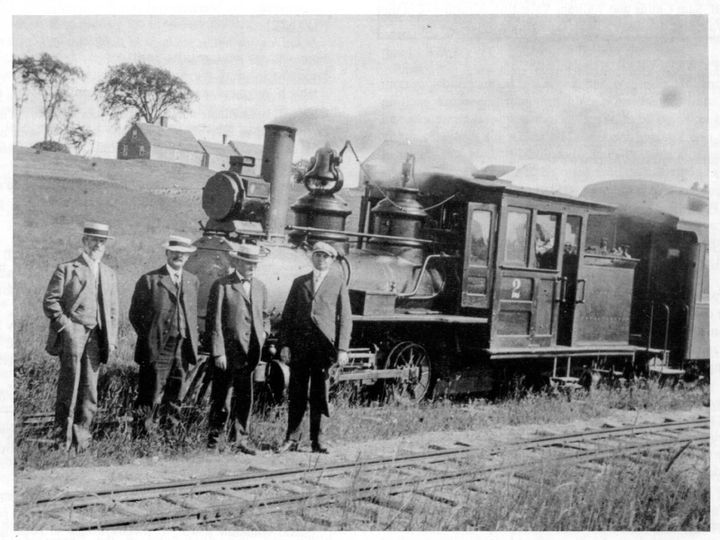
Albert Church Brown Memorial Library in China Village (photo courtesy of library Facebook page)
(Read about the candidates’ opening statements here.)
Three candidates for the state legislature and six candidates for China town offices spoke to an audience of more than three dozen at the Oct. 9 candidates’ forum at the Albert Church Brown Memorial Library in China Village.
Speakers were:
— Five candidates for three seats on the select board, incumbents Blane Casey and Brent Chesley and Edwin Bailey, Tod Detre and Thomas Rumpf.
— Timothy Basham, unopposed for re-election to the budget committee; there are no candidates on the Nov. 5 local ballot for two other budget committee positions.
— Incumbent Katrina Smith and challenger Pamela Swift, both Palermo residents, vying for the Maine House District #62 seat (representing China, Hibberts Gore, Palermo, Somerville and Windsor).
— Raegan LaRochelle, of Augusta, seeking the District #15 Maine Senate seat (Augusta, Belgrade, China, Mount Vernon, Sidney, Vassalboro). Her opponent, Richard Bradstreet, was not present; moderator Janet Preston said a communications problem had prevented him from attending.
Preston asked all nine candidates the same questions, covering housing and ways to let elderly people remain in their homes; local emergency services; Delta Ambulance; public open spaces; and higher education.
Speakers agreed people should be able to stay in their houses as long as they want to. Suggested ways to help included keeping property taxes down (Bailey, Chesley); improving public transportation (Detre); community sharing, like China’s proposed dog park (Detre) and weekly Wednesday morning Senior Game Day (Rumpf); and improved broadband to promote on-line medical care (Detre).
Swift, Smith and LaRochelle summarized innovative housing programs in Palermo and Augusta.
On the topic of volunteer fire departments and rescue units, Smith, Swift and LaRochelle sounded the alarm on a pending OSHA (Occupational Safety and Health Administration) regulation that has the laudable aim of keeping volunteers safe, but in their opinions constitutes overregulation.
Swift said Palermo’s fire chief told the select board the rule, if implemented, would make Palermo’s fire trucks substandard and firefighters’ training and gear inadequate. The chief opined it would cost $2 million to bring the fire department to code.
Consensus among China town candidates was that fire and rescue personnel should be represented in any discussion of their needs. Suggestions for encouraging more volunteers included more publicity, especially social media (Rumpf), and approaching Erskine Academy students (Bailey).
Rumpf recommended standardizing equipment among the three fire departments. Casey advocated state payment for training. Detre suggested a town-hired funding coordinator might bring more financial support.
Most speakers disapproved of towns being responsible for funding ambulance service, recommending county (LaRochelle), state (Chesley, Rumpf, Smith) or federal (Chesley, emphasizing the inadequacy of Medicare support for ambulances, Rumpf) funding. Detre thought a cooperative service with neighboring towns worth exploring, Casey thought it unaffordable.
Moderator Preston asked for reactions to economic development research showing “investing in public open spaces” brings residents and businesses and increases the tax base, contrasted with reducing municipal spending; and specifically for opinions on the proposed China dog park.
Detre was the only defender of the dog park, seeing it as a place where people with a common interest could mingle. He recommended funding open space projects with grants or with China’s TIF (Tax Increment Financing) funds while they’re available, not from taxes.
Chesley disagreed about using TIF funds, which come from Central Maine Power Company’s local taxes and, unlike federal ARPA (American Relief Plan Act) money, need not be allocated promptly.
LaRochelle interjected that both men were right. TIF programs end after 30 years, with a short grace period to finish spending, she said. [China’s program ends in 2045 – editor’s note.]
Chesley, Casey, Rumpf and Bailey all think China has adequate open space, public and private. Detre regretted the lack of lake access for non-shorefront owners, except boat access.
Rumpf, president of China’s Four Seasons Club, said after voters rejected an opportunity to buy lake frontage [in November 2013 – editor’s note], the club offered reduced-price memberships allowing access to its China Lake beach. There were two takers.
The question about education brought support for community college, especially with the option to continue to the University of Maine system, from Democrats Swift and LaRochelle, but not from Republican Smith. On the local level, Detre (reminding people he is a University of Maine system employee) was in favor. Casey questioned education “on taxpayers’ backs”; Bailey agreed with Casey.
Casey, Chesley, Detre and Rumpf all supported trade schools, with variations. Rumpf and Basham both suggested incentives for graduates to stay – and work – in Maine; Smith said her son who finished training as a welder is having trouble finding a job.
Audience questions directed at the five select board candidates revealed that Casey, Chesley and Detre prefer written-ballot town meetings to open ones, because more voters express opinions to guide town officials. Bailey and Rumpf agreed open meetings bring few attendees; Bailey would be willing to try an open town meeting again.
Asked again about economic development as the meeting wound down, Detre supported it, including solar farms; Chesley endorsed small manufacturing; Rumpf cited the riders of Four Seasons Club trails who spend money at China businesses.
China’s Tuesday, Nov. 5, voting will be in the former portable building behind the town office, with polls open from 7 a.m. to 8 p.m. Absentee ballots will be available at the town office through Thursday, Oct. 31.
CLARIFICATION
In the October 17, 2024, issue of The Town Line, on page 2, in the story about the candidates’ forum held at the Albert Church Brown Memorial Library, in China Village, the writer stated that Rep. Richard Bradstreet did not attend due to a “communication problem”.
Louisa Barnhart, President of the China Library Association, who organized the event, provided a clarification:
“Albert Church Brown Memorial Library recently held a candidate forum. We had excellent participation from candidates and the public. That is everyone but one.
“Representative Richard Bradstreet, Republican candidate for State Senate, was inadvertently not invited. This was not discovered until the night of the event, unfortunately.
“On behalf of the trustees of ACBM Library, I’d like to extend our sincere apology for this mistake. Our library carefully writes non-partisan questions and welcomes all points of view. There were other Republicans participating.
“As an organization, we do not support or oppose particular campaigns or candidates in any way. As a 501(c)3, we take our duty to remain nonpolitical extremely seriously.
“A mistake of this magnitude underscores our responsibility to carefully invite each candidate. We will be changing our procedures and carefully double checking invitation lists in the future.”
 by Mary Grow
by Mary Grow





